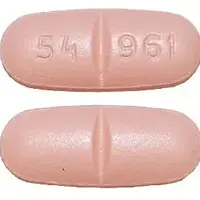Generic name: rufinamide
Drug class: Dibenzazepine anticonvulsants
Dosage form: oral tablet, oral suspension
Availability: Prescription only
Pregnancy & Lactation: Risk data available
Brand names: Banzel
What is Rufinamide?
Rufinamide is an anticonvulsant medication which is used as an add-on treatment alongside other antiepileptic medications to treat seizures in people with Lennox-Gastaut Syndrome. Lennox-Gastaut Syndrome is a rare and severe form of epilepsy that begins early in life.
Rufinamide is a type of drug called a triazole derivative. It is different to other antiepileptic drugs. It is not known exactly how rifinamide works to prevent seizures, but it is thought that it affects sodium channels in the brain that play a role in causing seizures.
Rufinamide was approved by the US Food and Drug Administration (FDA) in 2008.
What is rufinamide used for?
Rufinamide is a prescription medicine used with other medicines to treat seizures associated with Lennox-Gastaut Syndrome (LGS) in adults and pediatric patients 1 year of age and older.
It is not known if rufinamide is safe and effective in the treatment of Lennox-Gastaut Syndrome in pediatric patients under 1 year of age.
Warnings
Do not stop taking rufinamide without first talking to your healthcare provider.
Stopping rufinamide suddenly can cause serious problems.
Rufinamide can cause serious side effects, including:
1. Like other antiepileptic drugs, rufinamide may cause suicidal thoughts or actions in a very small number of people, about 1 in 500.
Call a healthcare provider right away if you have any of these symptoms, especially if they are new, worse, or worry you:
- thoughts about suicide or dying
- attempt to commit suicide
- new or worse depression
- new or worse anxiety
- feeling agitated or restless
- panic attacks
- trouble sleeping (insomnia)
- new or worse irritability
- acting aggressive, being angry, or violent
- acting on dangerous impulses
- an extreme increase in activity and talking (mania)
- other unusual changes in behavior or mood
- Suicidal thoughts or actions can be caused by things other than medicines. If you have suicidal thoughts or actions, your healthcare provider may check for other causes.
How can I watch for early symptoms of suicidal thoughts and actions?
- Pay attention to any changes, especially sudden changes, in mood, behaviors, thoughts, or feelings.
- Keep all follow-up visits with your healthcare provider as scheduled.
Call your healthcare provider between visits as needed, especially if you are worried about symptoms.
Do not stop rufinamide without first talking to a healthcare provider.
- Stopping rufinamide suddenly can cause serious problems. Stopping a seizure medicine suddenly in a patient who has epilepsy can cause seizures that will not stop (status epilepticus).
2. Rufinamide may cause you to feel sleepy, tired, weak, dizzy, or have problems with coordination and walking.
How should I take Rufinamide
- Take rufinamide exactly as your healthcare provider tells you. Your healthcare provider will tell you how much rufinamide to take.
- Your healthcare provider may change your dose. Do not change your dose of rufinamide without talking to your healthcare provider.
- Take rufinamide with food.
- Rufinamide tablets can be swallowed whole, cut in half or crushed.
- If you take rufinamide Oral Suspension instead of rufinamide tablets, shake the bottle well before you take each dose. Measure your dose of rufinamide Oral Suspension using the bottle adapter and dosing syringes provided.
See the complete Instructions for Use that come with your medication for information on how to use the dosing syringes and measure your dose of rufinamide Oral Suspension.
Dosing information
- Rufinamide should be given with food. Tablets can be administered whole, as half tablets, or crushed.
- Measure oral suspension using provided adapter and dosing syringe.
Pediatric patients year and older:
- Starting daily dose: 10 mg/kg per day in two equally divided doses.
- Increase by 10 mg/kg increments every other day to maximum dose of 45 mg/kg per day, not to exceed 3200 mg per day, in two divided doses.
Adults:
- Starting daily dose: 400-800 mg per day in two equally divided doses.
- Increase by 400-800 mg every other day until a maximum dose of 3200 mg per day, in two divided doses, is reached.
Before Taking
Do not take rufinamide if you have a genetic condition called familial short QT syndrome, a problem that affects the electrical system of the heart.
What should I tell my doctor before taking rufinamide?
Before you take rufinamide, tell your healthcare provider if you:
- have heart problems
- have liver problems
- have any other medical problems
- have or have had suicidal thoughts or actions, depression or mood problems
What happens if I overdose?
If you take too much rufinamide, call your local Poison Control Center or get emergency medical help right away.
What should I know about storage and disposal of this medication?
Keep this medication in the container it came in, tightly closed, and out of reach of children. Store it at room temperature and away from excess heat and moisture (not in the bathroom).
Unneeded medications should be disposed of in special ways to ensure that pets, children, and other people cannot consume them. However, you should not flush this medication down the toilet. Instead, the best way to dispose of your medication is through a medicine take-back program. Talk to your pharmacist or contact your local garbage/recycling department to learn about take-back programs in your community. See the FDA's Safe Disposal of Medicines website (http://goo.gl/c4Rm4p) for more information if you do not have access to a take-back program.
It is important to keep all medication out of sight and reach of children as many containers (such as weekly pill minders and those for eye drops, creams, patches, and inhalers) are not child-resistant and young children can open them easily. To protect young children from poisoning, always lock safety caps and immediately place the medication in a safe location – one that is up and away and out of their sight and reach. http://www.upandaway.org
What special dietary instructions should I follow?
Unless your doctor tells you otherwise, continue your normal diet.
What should I avoid while using Rufinamide?
- Do not drink alcohol or take other medicines that make you sleepy or dizzy while taking rufinamide until you talk to your healthcare provider. Rufinamide taken with alcohol or medicines that cause sleepiness or dizziness may make your sleepiness or dizziness worse.
- Do not drive, operate heavy machinery, or do other dangerous activities until you know how rufinamide affects you. Rufinamide can slow your thinking and motor skills.
Rufinamide side effects
See “Important information”
Rufinamide may cause serious side effects including:
- Rufinamide can also cause allergic reactions or serious problems which may affect organs and other parts of your body like the liver or blood cells. You may or may not have a rash with these types of reactions.
Call your healthcare provider right away if you have any of the following. Symptoms may include:- swelling of your face, eyes, lips, or tongue
- trouble swallowing or breathing
- a skin rash
- hives
- fever, swollen glands, or sore throat that do not go away or come and go
- swollen glands
- yellowing of your skin or eyes
- dark urine
- unusual bruising or bleeding
- severe fatigue or weakness
- severe muscle pain
- your seizures happen more often or become worse
Call your healthcare provider right away if you have any of the symptoms listed above.
The most common side effects of rufinamide include:
- headache
- dizziness
- tiredness
- sleepiness
- nausea
- vomiting
Tell your healthcare provider about any side effect that bothers you or that does not go away. These are not all of the possible side effects of rufinamide. For more information, ask your healthcare provider or pharmacist.
Call your doctor for medical advice about side effects. You may report side effects to FDA at 1-800-FDA-1088.
See more: Rufinamide Side EffectsWhat other drugs will affect Rufinamide?
Tell your healthcare provider about all the medicines you take, including prescription and non-prescription medicines, vitamins, and herbal supplements.
Taking rufinamide with certain other medicines can cause side effects or affect how well they work. Do not start or stop other medicines without talking to your healthcare provider.
Rufinamide may make certain types of birth control less effective. Talk to your healthcare provider about the best birth control methods for you while you take rufinamide.
Know the medicines you take. Keep a list of them and show it to your healthcare provider and pharmacist each time you get a new medicine.
What other information should I know?
Keep all appointments with your doctor.
Do not let anyone else take your medication. Ask your pharmacist any questions you have about refilling your prescription.
It is important for you to keep a written list of all of the prescription and nonprescription (over-the-counter) medicines you are taking, as well as any products such as vitamins, minerals, or other dietary supplements. You should bring this list with you each time you visit a doctor or if you are admitted to a hospital. It is also important information to carry with you in case of emergencies.







